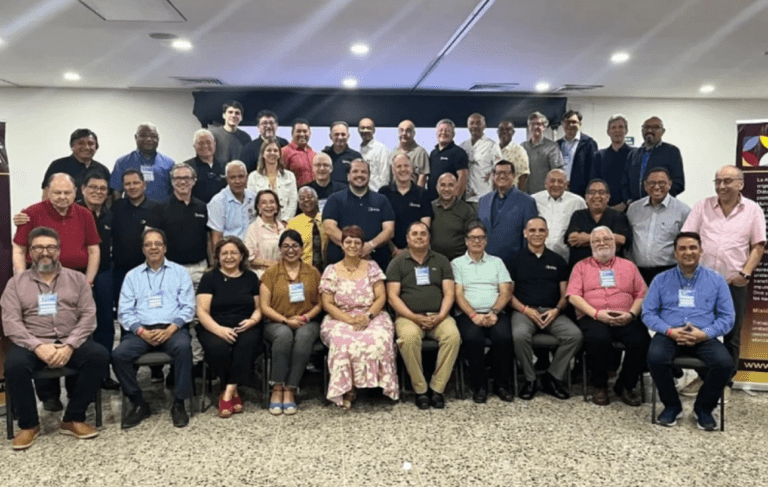The 12th General Assembly of the Latin Evangelical Alliance (AEL) concluded on September 12th in Cartagena with a clear and powerful message. The Evangelical Church of Ibero America is determined to play a leading role in shaping public life. Uniting for purpose, they pledged to protect religious freedom, their families and the rights of life, while deepening their unity and expanding social engagement.
The five-day gathering brought together presidents of more than 20 nations, sectarian leaders, committee coordinators and representatives under the theme of “The Influence of the Evangelical Church in Ibero America.” The session included messages from pastors Ricardo Rodriguez and Andre Colson, but the prayers were led by Victor Tibulcio of Unilimi, Gabriel Sarguero of Narec and Harold Segura of World Vision.
Cartagena Declaration
The central document of Congress is the Cartagena Declaration: The Impact of the Evangelical Church of Ibero America, highlighting both the historical and current contributions of churches in the region.
The Declaration recalls the operation of evangelical communities since the 19th century in education, health care, defense of freedom of conscience, and preserving Indigenous languages. Today, their influence is reflected in seven key areas.
Community Growth with Social Impact: From just 1% of the population in 1910 to over 20% in 2014, and even more than 50% in Central American countries.
Ethical and caring commitment: Promoting justice and mercy for the most vulnerable.
Educational initiatives with Christian moral values and literacy programs.
Inclusive support and family recovery with mental, social and psychosocial support, especially in the defense of life, children and young people.
Provides an ethical voice for discussions about partisan participation in public affairs, human rights, justice and religious freedom.
Cultural renewal by faith, including biblical translation into Indigenous languages.
It creates a space of hope amidst the lives of communities of faith, inequality, violence and moral crisis.
AEL is affirmed in the document. “We firmly believe that the gospel of Jesus Christ remains good news for all, all families and every city. We renew our mission to light in the spiritual darkness, salt to prevent corruption, and reach for in times of pain.”
The declaration urged the Church to “see with the eyes of faith the reality of our time and identify with spiritual clarity without falling into fear or comfortable indifference.” This call is “a salt that maintains and brings back to life the truth, a light that illuminates the path in the midst of darkness, a prophecy that condemns sin and announces hope.”
Cartagena’s declaration concluded with the accusation that “Let us not only read this declaration, but we should be alive.” It invites all congregations to serve as beacons, reflecting the character of Christ and changing their surroundings, recalling the promises of Zechariah 4:6.
Leadership update
During Congress several AEL committee members were reaffirmed, while others were newly elected and commissioned to guide the movement at moments that were crucial for Ibero-Americans. Leadership pledged to strengthen leader training, deepen dialogue with public institutions, and amplify the voice of evangelicalism at international forums.
The AEL board of directors for the 2025-2027 term of office includes Paraguay President Juan Cruz Sermale, Guatemala Vice President Cesar Ayala and Bolivia’s Treasurer Henrino Gareth. The board members are Julian Hernandez of Mexico, Cesar Mermejo of Venezuela, Gabriel Sarguero of the United States, and the large Galavedian of Uruguay.
It was originally published in Diario Cristiano, the Spanish version of Christian Daily International.
